
Careers in chemistry and materials
Join the next generation of materials scientists with the help of a masters degree.
What skills will I gain?
There’s an ever-increasing need for scientists and engineers who can develop and transform new materials. From applications in healthcare, to transforming how society harvests and stores energy; the expertise to create advanced materials gives us the power to change the world we live in.
With a highly sought-after combination of chemistry, engineering, and project management our course sets you up with the skills for life after your studies. You’ll develop an in-depth understanding of:
- the relationship between the structure and performance of different materials
- the fundamental principles driving the development of innovative products
- strategies for the design and development of novel materials
With our pioneering masters course, you’ll join the next generation of material scientists helping to shape our world. You’ll build a career that matters.
Why Manchester Met?
-
World-class facilities
We’ve built a learning environment that inspires innovation and achievement. We’ve got excellent, industry-standard facilities where you can hone your practical skills with the support of our experienced technical staff. You’ll have access to modern laboratories with the latest analytical and materials characterisation techniques. This includes X-ray diffraction, scanning electron microscopy, X-rays photoelectron spectroscopy and many more.
Over at the Manchester Fuel Cell Innovation Centre we’re developing the technology talent of tomorrow, leading the way in harnessing renewable energy. We’re exploring the pure science of the fuel cell itself, driving engagement with industry on a local, national and international scale.
Also, at Print City — our 3D additive and digital manufacturing centre — you’ll have access to a large and varied range of 3D printers for manufacturing plastic and metal parts. Our campus is the perfect playground for you to hone your specialist skills.
-
Multi-disciplinary approach
We place employability at the heart of your learning, regularly reviewing our courses to ensure that they are up-to-date and relevant to industry needs. Our MSc Advanced Materials course places a strong emphasis on project management skills, with units developed in line with the Association for Project Management and Project Management Institute. With the skills you gain, you can become a leader of tomorrow.
-
Professional links
Through their work, our researchers maintain strong industry links. This ensures that you learn the practical and professional skills that employers need — not to mention the possibility of gaining practical experiences and developing your professional network.
You also have the option to undertake an industry placement year as part of your studies subject to applying and going through a recruitment process. This will boost your employability and help you to secure a permanent position after graduation.
Live labs
You’ll also take part in live labs to gain valuable industrial experience.
Every year, we visit employers and undertake research case studies set by industry collaborators and present back our findings. This improves our students’ professional and interpersonal skills, as well as providing networking and mock interview opportunities.
Careers in chemistry and materials
Our masters course in advanced materials opens a wide range of specialist careers and possibilities. Here’s a selection.
-
Metallurgist
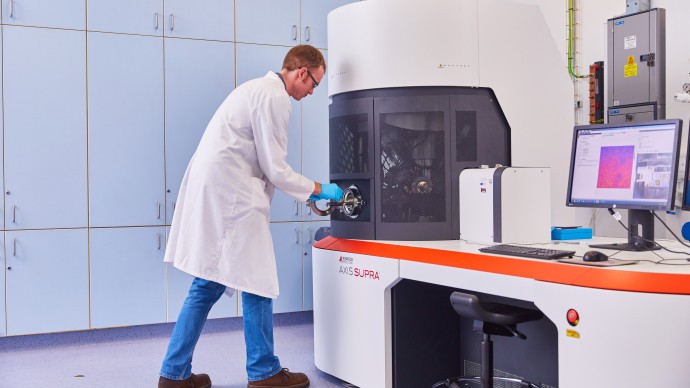 With a particular focus on metals and alloys, metallurgists use this knowledge to develop and improve materials for various applications. For example designing stronger and more durable materials for aerospace, automotive, or construction industries.
With a particular focus on metals and alloys, metallurgists use this knowledge to develop and improve materials for various applications. For example designing stronger and more durable materials for aerospace, automotive, or construction industries. -
Product development scientist
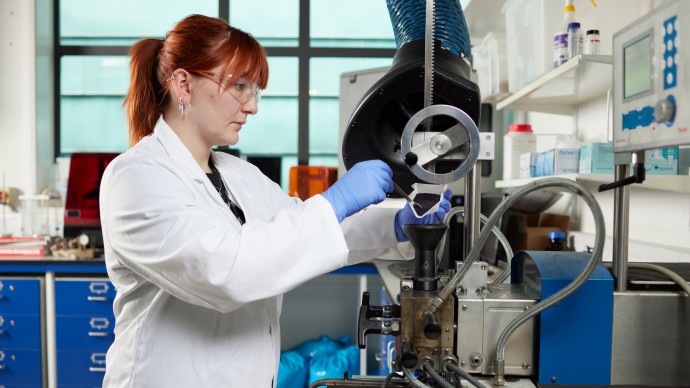 In this role, you’d be responsible for designing and optimising products and manufacturing processes. Responsibilities include conducting research, experiments and testing to create and improve specialist products.
In this role, you’d be responsible for designing and optimising products and manufacturing processes. Responsibilities include conducting research, experiments and testing to create and improve specialist products. -
Quality control chemist
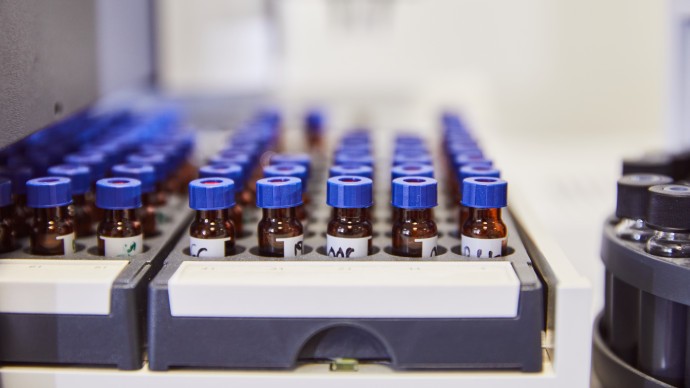 You'll be responsible for ensuring that manufactured products meet specified quality standards and regulations. By conducting tests and chemical analyses on product samples, you'll maintain consistency and compliance in the production process.
You'll be responsible for ensuring that manufactured products meet specified quality standards and regulations. By conducting tests and chemical analyses on product samples, you'll maintain consistency and compliance in the production process. -
Technical sales
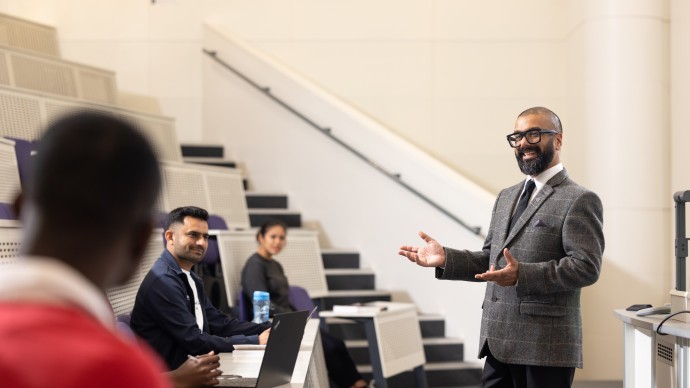 Your expert knowledge in the field could empower you to launch a lucrative career in Technical Sales. You’ll help scientific businesses and researchers make informed decisions about the specialist products they buy.
Your expert knowledge in the field could empower you to launch a lucrative career in Technical Sales. You’ll help scientific businesses and researchers make informed decisions about the specialist products they buy. -
PhD researcher
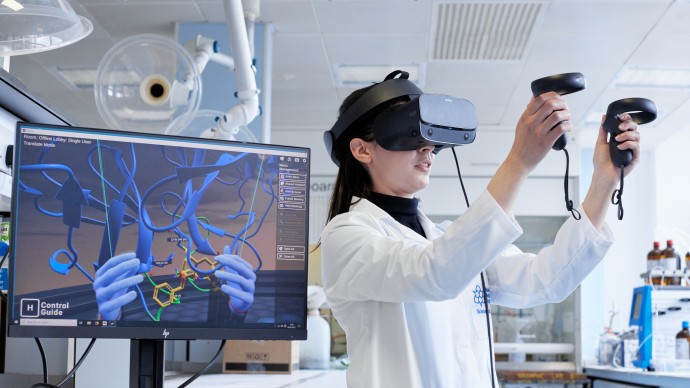 You’ll become an expert in the field, pushing the boundaries of modern understanding of chemistry and materials science.
You’ll become an expert in the field, pushing the boundaries of modern understanding of chemistry and materials science. -
Teacher
 Inspire the next generation by designing and delivering programmes that raise awareness about chemistry and materials. This could be in schools, communities or higher education facilities.
Inspire the next generation by designing and delivering programmes that raise awareness about chemistry and materials. This could be in schools, communities or higher education facilities.
Hear from our alumni
The department provides strong, direct links with relevant leading companies in industry and so there are a number of opportunities to gain hands-on experience. Additionally, lecturers are really eager for students to gain relevant research experience in areas they are interested in.
The department provides strong, direct links with relevant leading companies in industry and so there are a number of opportunities to gain hands-on experience. Additionally, lecturers are really eager for students to gain relevant research experience in areas they are interested in.

